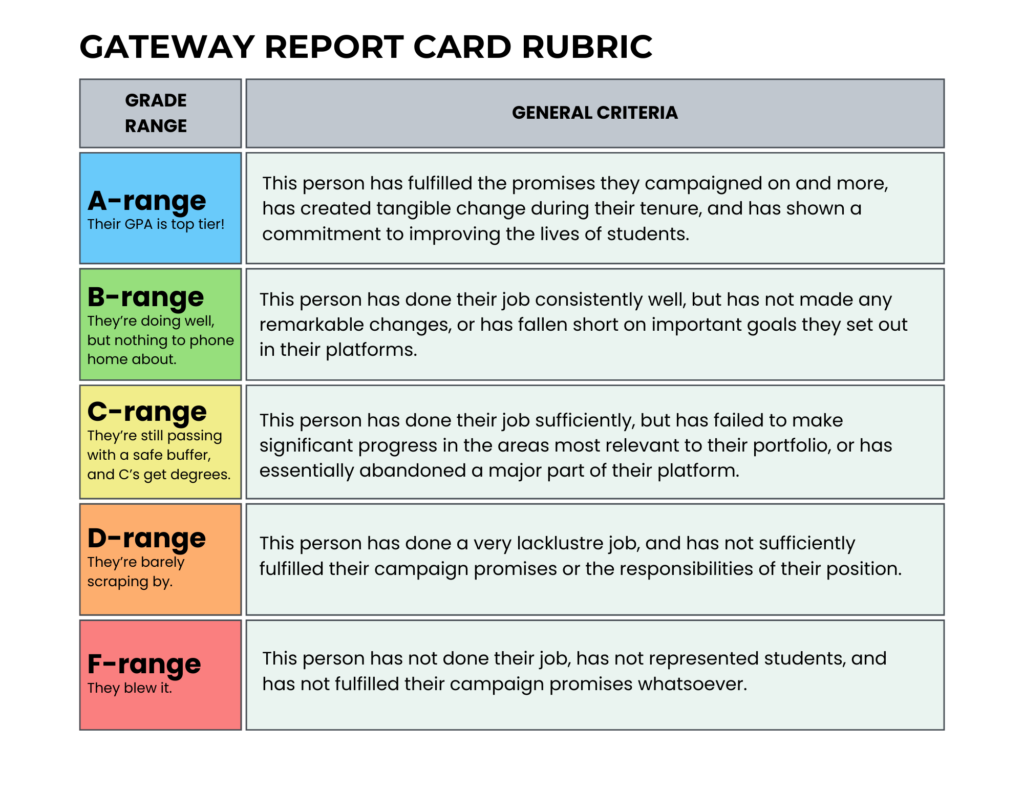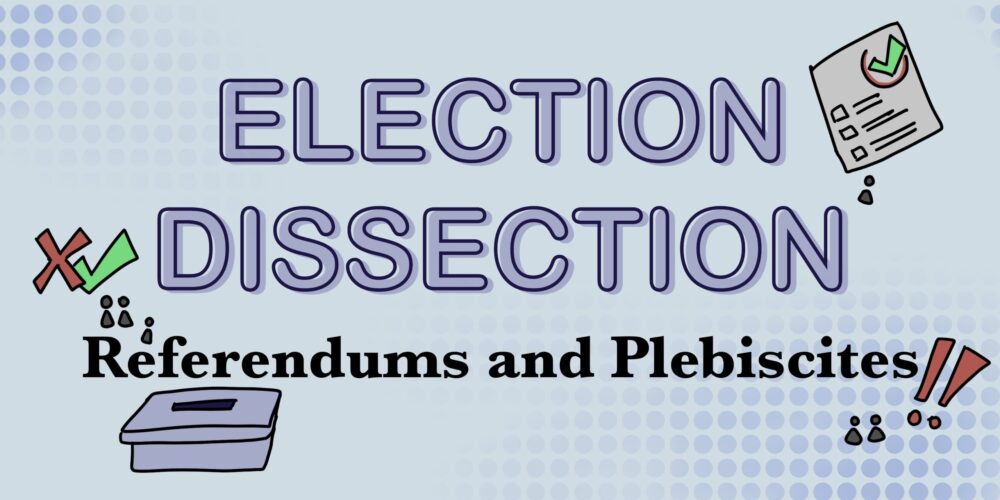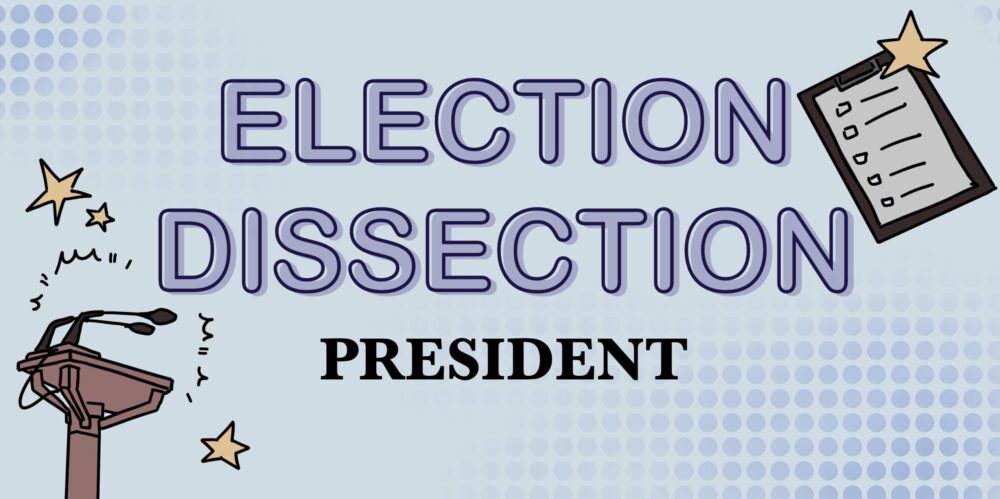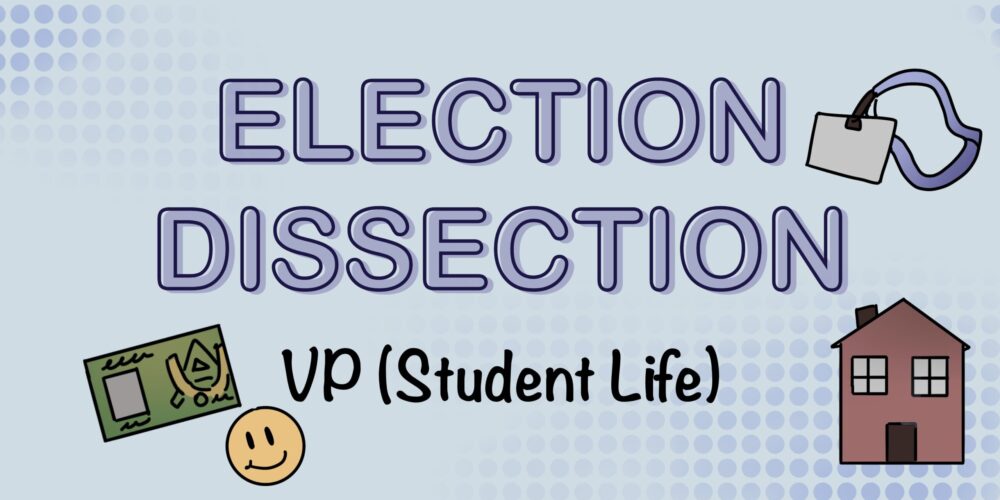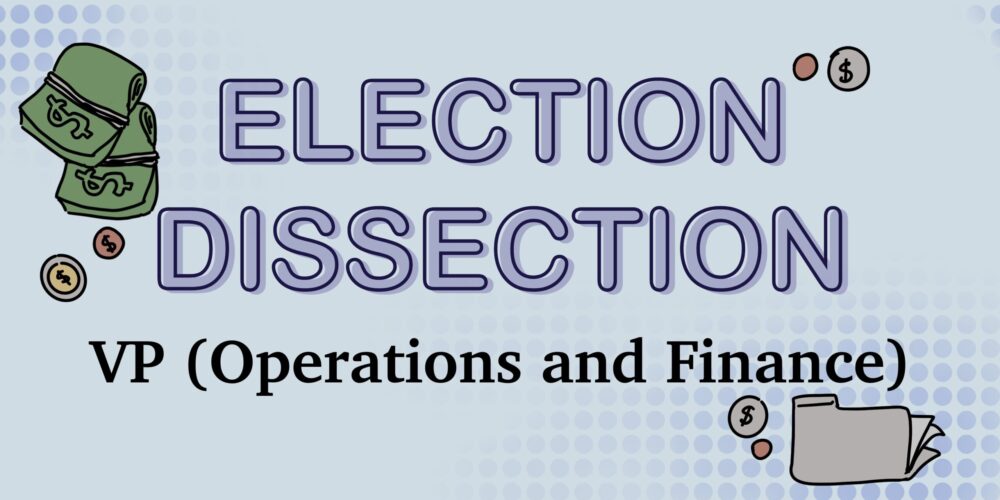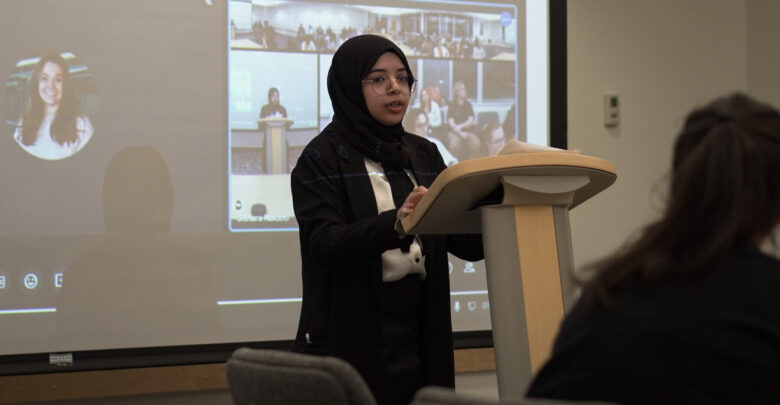 Lily Polenchuk
Lily Polenchuk Each year, The Gateway publishes an evaluation of the Students’ Union Executive and the Board of Governors representative. It’s impossible to discuss every aspect of their tenures, so these reports are largely based on the major components of the platform each executive campaigned on, and the most significant responsibilities of their respective positions. The grading rubric can be found at the bottom of the article.
And if you’re short for time, check out our TL;DR for a bite-sized breakdown towards the end of the article.
Layla Alhussainy: A-
The University of Alberta Students’ Union (UASU) vice-president (academic) (VPA) is responsible for advocating for students’ needs on academic issues. This can include issues with course material affordability, accommodations, academic advising, and student conduct policies. Layla Alhussainy, the 2024–25 VPA, has been able to touch all of these areas.
Progress on accessibility and academic advising
Academic advising and accessibility are central to the VPA’s portfolio. One goal of Alhussainy’s was to create an accessibility map for campus. This would mark things like accessible entrances and accessible ways of navigating buildings. Alhussainy told me she went to several departments about creating this, but “not everyone saw value in it.” Still, she persisted and the Dean of Students (DoS) office has picked up the project.
Any movement on this is impressive and much needed. As Alhussainy said, no student should have to face barriers on campus, and I couldn’t agree more. Creating easily accessible information for students trying to find accessible entrances is a big step in the right direction.
Another project Alhussainy mentioned to me was making improvements to academic advising. Alhussainy said the Office of the Provost and Vice-president (academic) has picked up this project, which will take place over two years. According to Alhussainy, this came after a lot of presenting and advocacy. Over that time, training, resources, communication, and sensitivity issues will be examined and hopefully addressed.
According to Alhussainy, it was clear that issues with academic advising weren’t confined to one faculty — it was a university-wide problem. She highlighted the issue of sensitivity in our interview. As Alhussainy said, academic advisors are often students’ first point of contact and can sometimes come off as dismissive. This can then cause students more stress when they’re already dealing with stressful situations. I’m glad to see Alhussainy highlighting this aspect in these conversations.
While there aren’t immediate results right now, this lays the groundwork for future action to make meaningful improvements. This is much needed after major academic restructuring, which affected services like academic advising. A comprehensive, two-year review has the potential to be the driver for change.
Another point of advocacy has been high-flex learning, which refers to classes that have the option for students to attend in-person or online. Alhussainy said the university has largely shut this down because of training and budget constraints. But while high-flex learning may not be a reality, there’s growing recognition of demand for online learning. Online options can be more flexible and accommodating to different kinds of learners, students who are also caregivers, students who commute to school, among others.
Jessica Butts Scott, associate vice-president (online and continuing education), and Kristin Mulligan, director of online learning, recently presented to Students’ Council on online learning options. According to Alhussainy, this shows the university’s recognition of the need to expand online learning. She also said she hopes her successor can continue advocating for more online learning options.
Pushing for student consultation on course materials and AI
A more recent development has been the university’s new push for the First Day Access Program (FDAP). This is incredibly similar to the Academic Materials Program (AMP), which was opposed by Students’ Council in late 2023. Students’ Council also voted to opposed FDAP.
FDAP would introduce a semesterly flat fee which would give students access to online versions of their required course texts. Once the semester is over, students would lose access. The program would be opt-out rather than opt-in, which has been an area of major concern. The university only expects FDAP to serve 7,000–9,000 students, which leaves about 30,000 who this wouldn’t help. That would also be 30,000 students who would have to opt-out of the program to not be charged the fee. This is entirely unrealistic and simply illogical.
Alhussainy said she has a lot of concerns about the program, especially the lack of information about it. She also told me she had asked the university to present to Students’ Council on FDAP multiple times before it agreed. Alhussainy also got the university to present at the Council of Faculty Associations (COFA). Then, she convinced the university to present to COFA for a second time in order to answer questions the presenters weren’t able to be answer in the initial presentations.
The fact that no one planned to present to either the UASU or COFA in the first place is highly disappointing and concerning. But Alhussainy isn’t stopping there. She told me she is making it clear that these presentations aren’t the same as student consultation, which the university still needs to do.
It’s clear this is a priority for Alhussainy, as it should be. It’s encouraging to know she is raising concerns about the lack of consultation on behalf of students and faculty. Even just providing the UASU and COFA with information on the program is valuable. It ensures that the UASU and COFA can properly advocate on the issue even after Alhussainy finishes her term. Alhussainy also noted the list of questions she emailed to Katherine Huising, associate vice-president (campus services), about the program. With that, she was able to get answers in writing and establish a “paper trail,” as she called it, which can further help with future advocacy on the issue.
Another issue she’s been pushing for is increased student consultation on the creation of the U of A’s artificial intelligence (AI) policy. The policy is still in the draft phase. Alhussainy told me she’s been asking the university to do more student consultation before it’s finalized. She did note that further consultation may delay the initial timeline for releasing the policy. But in my mind, a delay is well worth thorough consultation on a policy that will increasingly impact students.
Alhussainy also mentioned she’s been paying close attention to the wording of the policy. Oftentimes, the university writes its policies with a lot academic or legal jargon. This can make it difficult for any student to fully understand the policies they’re expected to follow. And any language barriers a student may face would only exacerbate that issue. Ensuring any policy on student behaviour is going to be accessible and understandable for students is so important.
Additionally, Alhussainy has once again been pushing for a presentation on the drafted policy to Students’ Council. Keeping students, or at least elected student leaders, up-to-date with its progress and giving them the opportunity to ask questions is the right thing to do.
Overall, Alhussainy’s push for more student consultation aligns perfectly with what she should be doing as VPA. Additionally, paying special attention to FDAP and the development of an AI policy serves students well.
Work and progress could’ve been communicated better
While it’s clear to me now that Alhussainy has been hard at work during her term, I wasn’t so sure before our interview. Largely, this was because of lacking communication about her work and the progress. Aside from the executive advocacy updates, which are chronically vague, there aren’t many ways to know exactly what Alhussiany has done.
Sure, she and every other executive give reports at Students’ Council, but not many students are ever actually going to read those. Alhussainy has been doing work that’s worth sharing, so I wish she had done more to tell students about it. Clearer communication and more accessible updates about her progress would have pushed Alhussainy’s grade higher. That being said, she has still been doing a lot of work on issues that are important to students.
TL;DR: Alhussainy has done a lot of work on accessibility and academic advising, as well as pushing for more student consultation on AI guidelines and course materials. Even when faced with disinterest from the university, Alhussainy has been a strong voice for students. However, she could have benefited from better communication with students about her work.
